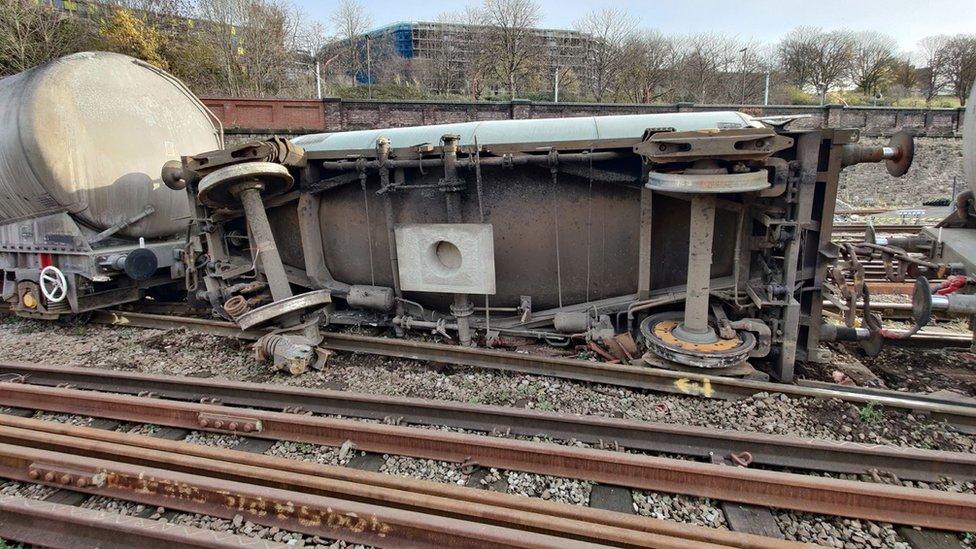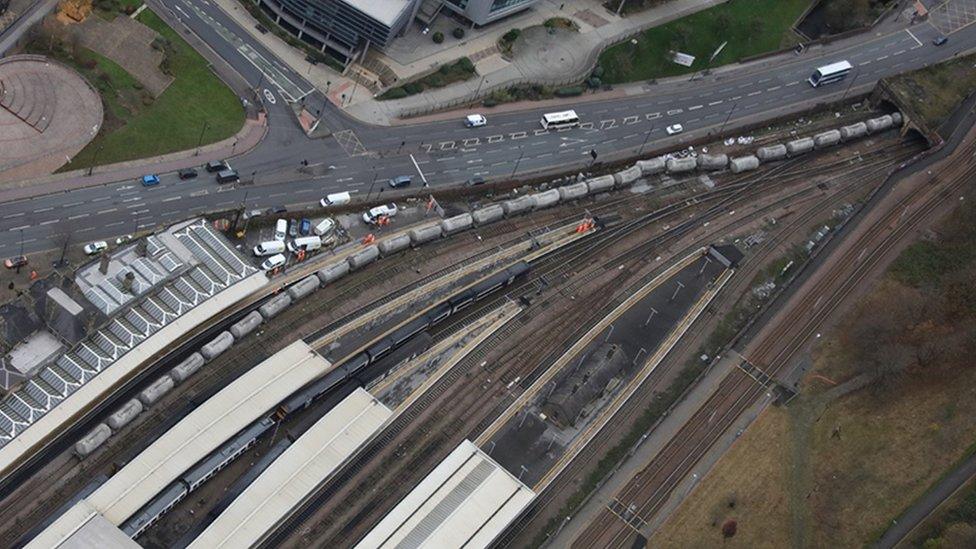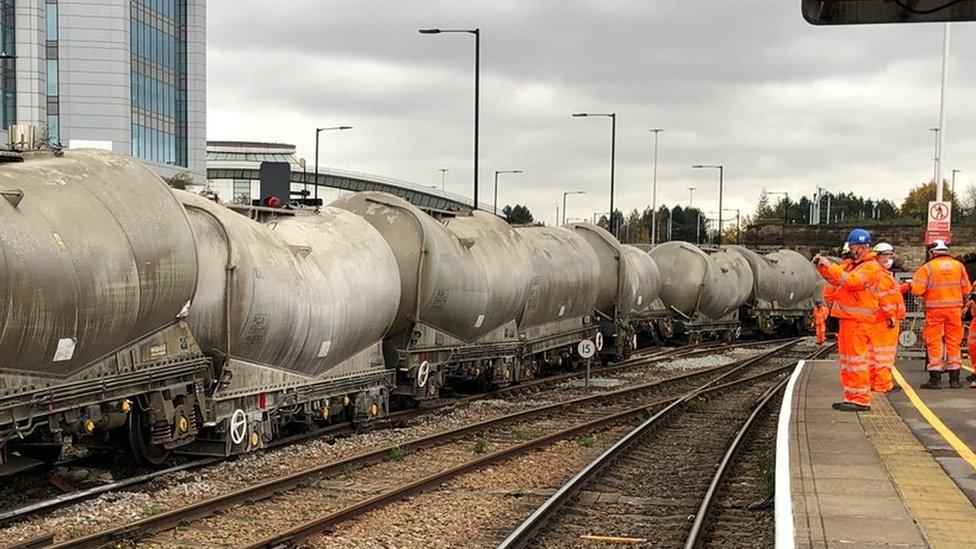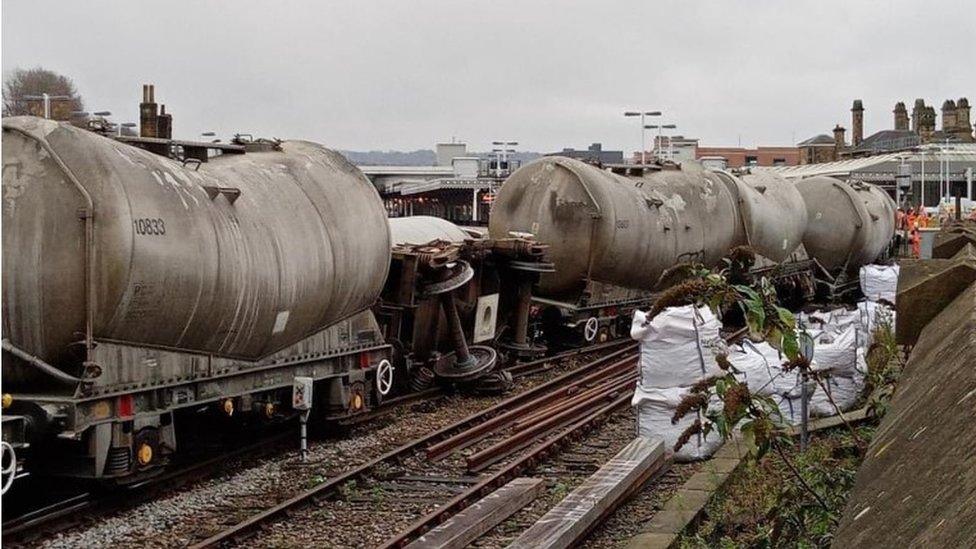Sheffield train derailment blamed on broken track screws
- Published

One wagon derailed and flipped onto its side, with specialist lifting equipment being brought in to move it
A series of broken track screws caused a freight train to derail, resulting in disruption to services across the north of England, a report has found.
The 34-wagon cement-carrying train derailed at low speed near Sheffield station in November 2020.
The Rail Accident Investigation Branch (RAIB) said the screws had been broken for "several weeks" before the incident but had been missed by Network Rail.
Network Rail said it took incidents like this "extremely seriously".
A report into the derailment by the RAIB, external said the track screws, used to secure the rails to wooden bearers, had broken, causing them to spread apart under the loads from passing trains.
It said the widening of the track lead to 16 wagons derailing, causing "significant" damage to the track and wagons and resulting in Sheffield station being partially closed for five days.
Nobody was injured in the incident.

The derailed wagons blocked the north of Sheffield station for five days
The broken screws had been missed during a series of routine visual inspections in the weeks leading up to the derailment, the report said.
However, it added that due to the nature of the break, the failures were "not immediately obvious".
As a result of the investigation, the RAIB said it had made four recommendations to Network Rail, external, including around identifying high derailment risk locations.
Matt Rice, from Network Rail, said safety was a priority for the organisation.
"Since it happened, we have worked closely with the Rail Accident Investigation Branch and have already begun exploring ways to implement their recommendations," he added.

Follow BBC Yorkshire on Facebook, external, Twitter, external and Instagram, external. Send your story ideas to yorkslincs.news@bbc.co.uk, external.
Related topics
- Published11 November 2020

- Published12 November 2020
